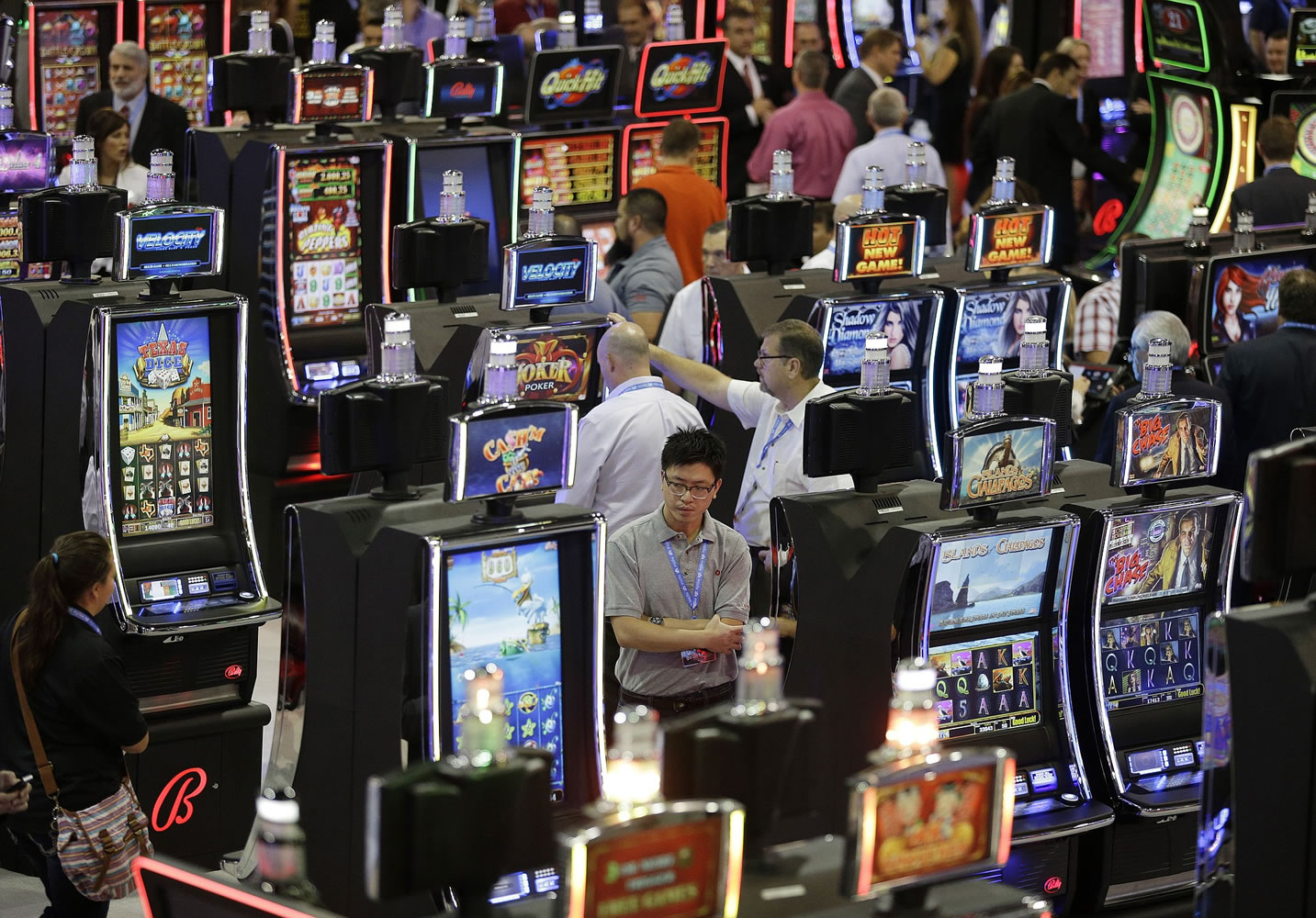LAS VEGAS — U.S. casinos and the makers of the games found inside had a $240 billion economic impact and employed 1.7 million people in 2013, a study shows.
That includes $38 billion in local, state and federal taxes the industry said it paid last year in gambling fees, property taxes, income taxes and more. Unlike prior studies, the report included the impact tribal gambling and some legal online gaming has had on the economy.
The American Gaming Association announced the results of the study at a news conference Tuesday.
The group’s annual G2E Global Gaming Expo is being held this week at the Sands Expo and Convention Center in Las Vegas.
The study by Oxford Economics took into account everything from wagers by gamblers doubling-down to tourists buying gas, meals or tickets to a show.
It looked at the gambling industry’s total revenue and its tax payments, including gambling, property and income taxes. It also used a multiplier to consider the industry’s impacts on other businesses, largely tourism related, that sell to casino customers and hire accordingly.
For that, Oxford used traveler spending data from Longwoods International for visitors who said the reason for their trip was to go to a casino.
The numbers didn’t surprise David Schwartz, director of the Gaming Research Center at the University of Nevada, Las Vegas.
“I think it’s an important part of telling the whole story,” he said.
That story, he said, includes not only casino gambling but the industry’s impact as hoteliers, retailers and others.
What got the gambling industry to this point isn’t going to keep it thriving, though, said Geoff Freeman, the association’s president. With growing competition, Freeman said the industry needs to seek regulatory changes that can help make the business more efficient and free up companies to be more innovative, he said.
The industry has suffered particularly in Atlantic City, where four casinos have closed this year, leaving 8,000 people out of work.
Oxford Economics looked at regulatory data, federal labor statistics and surveyed casinos for the study. It included spending and revenue in the report that might be linked but not directly connected to a casino.



